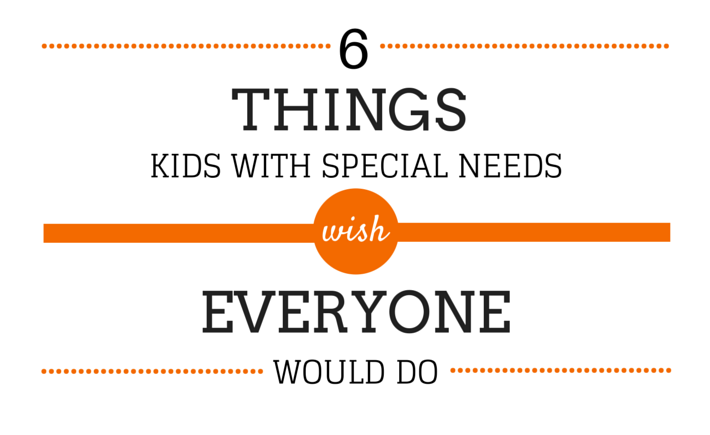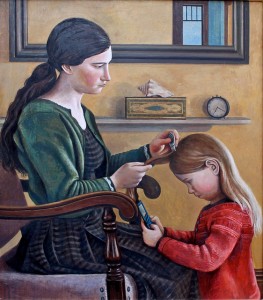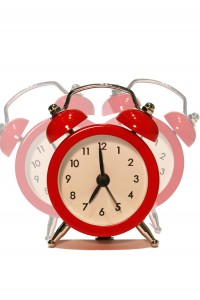
When we published our article 6 Things Parents Wish Their Kids Would Do … and 6 Things Kids Wish Their Parents Would Do, one of our readers got in touch to say we should do one for the things that kids with special needs wish EVERYONE would do. So we asked our followers, and came up with this list.
It was a bit tricky to put the list together, because there are so many different kinds of “special needs”. For some children, their disability is quite well manageable with medication, or with assistance and therapy, and you’d hardly know they had any additional needs. You may have heard of autism or Asperger’s Syndrome – these are part of the autistic disorder spectrum, a range of conditions that affect how people communicate and relate to people around them. You can’t tell by looking at someone if they have ASD.
Other children have disabilities that are apparent when you meet them, such as those with Down’s Syndrome, which we have covered in more detail here. Or they might use a wheelchair to get around.
What thing do they all have in common? They sometimes get asked really silly questions, and get treated badly by people. Make sure you aren’t one of them, by listening to what the kids (and their parents) had to say!
1. Speak to Me
Don’t speak to my parent or carer, but to me. I am a person, and I understand you, even if I don’t show it. If you want to ask my likes or dislikes, ask me. Don’t be frightened to ask me a question about my disability, and how it affects me. I’d rather you do that, than whisper behind my back.
2. Follow my Lead
Yes, I know I said speak to me, but sometimes it scares and upsets me, so don’t be pushy and try to make friends with me. Watch for signs that I’m distressed or unhappy and back off. If I have ASD then changes in routine or loud noises might unsettle me and make me frightened, so that I cover my ears or even shout. If this happens, don’t try to help, or talk me out of it – my parent or carer will know what to do. If I shout, it doesn’t mean that I am angry at you, it’s that I can’t cope with what is going on around me and need some time to process my emotions.
3. Don’t Treat Me Like a Baby
I’m in a wheelchair, not a buggy, so don’t treat me like a baby by using the sing-song voice and patting me on the head. If I use a wheelchair to get around, don’t make decisions for me and move me to the opposite side of the room. I’ll let you know if I need assistance.
4. Accept Me as I Am
I’m not “the autistic boy” or “the Down’s Syndrome girl”. I’m me. A young person with likes and dislikes, good days and bad days. Don’t define me by my disability. If I have autism, then don’t expect me be a mathematical genius, or be able to remember the exact date of every Dr Who show ever broadcast. It’s called the autism SPECTRUM because it covers a huge range of abilities and limitations.If I have Down’s Syndrome, don’t say “Oh, they are always so happy and friendly!” I’m not a golden retriever!
5. Don’t Rush Me
I may take a little longer, but I will get there in the end, so be patient. Include me in your games, even if I can’t do everything that you do. I’d rather join in and not manage everything, than be left sitting on the sidelines.
6. Don’t Pity Me
Don’t say that you are sorry, or look at me with pity in your eyes. Don’t say that I “suffer” from my condition; I have it. I am not ‘wheelchair bound’, that makes it sound like they’ve glued me into it. I use a wheelchair, and I can make it go pretty fast, so mind your feet!
I may have obstacles to overcome that you don’t have, but don’t tell me how “brave” I am, or that I’m an inspiration to you. I’m just another kid, who happens to have a disability. It doesn’t define me – it isn’t all I am.




